This week we highlight how contributions to WHO are providing health services and supplies to snow-blanketed refugee camps, and vaccines to flood zones threatened with cholera.
WHO support is protecting remote Nepali villages from COVID-19, improving Timor-Leste’s health system, and providing much-needed refrigeration equipment for vaccination campaigns in Suriname and Belize.
Read on for details on all these stories:
In the thick of winter, WHO appeals for help to save Afghanistan’s collapsing health system
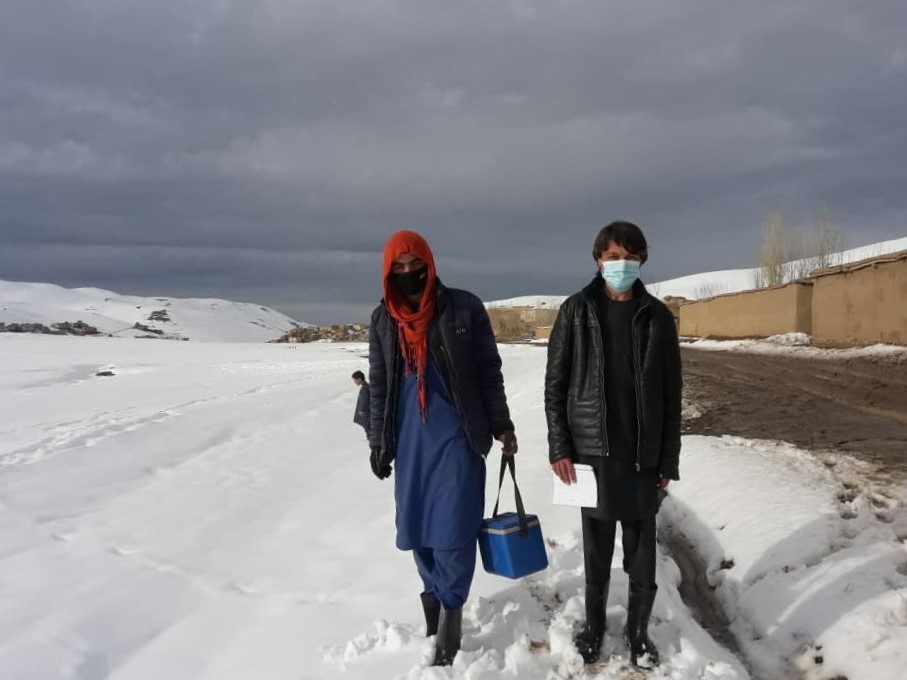 Polio workers in Afghanistan. ©WHO
Polio workers in Afghanistan. ©WHO
WHO is urgently calling for international donors to find alternative ways to fund Sehatmandi, Afghanistan’s biggest health program, which lost its major funding last August after the Taliban takeover of Kabul and is increasingly unable to provide vital primary health services.
“The recent funding pause … will cause the majority of the public health facilities to close. As a result, more mothers, infants and children will die of reduced access to essential health care,” said WHO Afghanistan Representative Dr Luo Dapeng. “WHO is determined to work with partners in identifying a sustainable solution.”
Mobile teams rush to help displaced people in Syria; countries donate COVID-19 vaccines
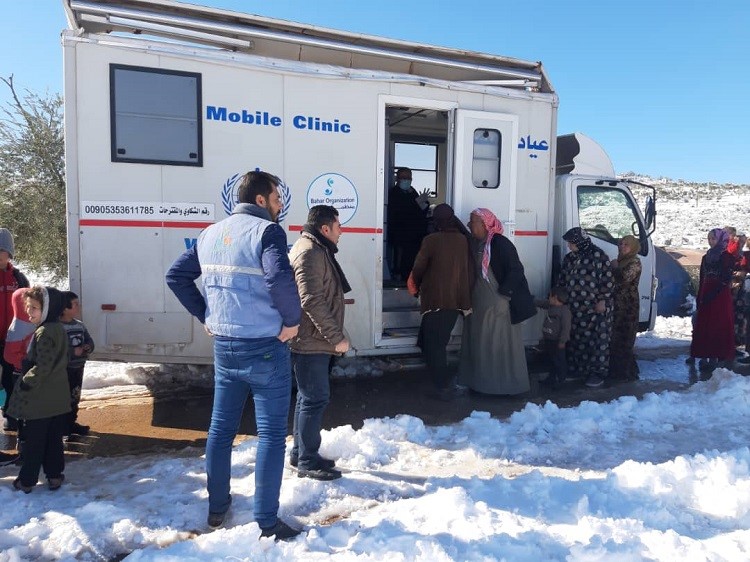
WHO has recently launched an appeal for Syria. ©WHO
WHO and partners have been deploying rescue health services to northwest Syria, a conflict zone where some 4.4 million people are trying to survive a punishing winter with too little fuel, heat, medical services and other essentials. The area includes dozens of storm-damaged camps that are home to more than 88 000 people displaced by the country’s long conflict.
The freezing weather is especially dangerous to pregnant women, the chronically ill, and children. In the wake of an 18 January snowstorm, doctors have been reporting more cases of children with respiratory diseases.
In January, Syria received nearly 4 million doses of COVID-19 vaccine from Italy, more than 150 000 doses from Japan and more than 381 000 doses from Spain. The donations came through COVAX. Syria has struggled to vaccinate its population amid conflict, economic decline and harsh weather.
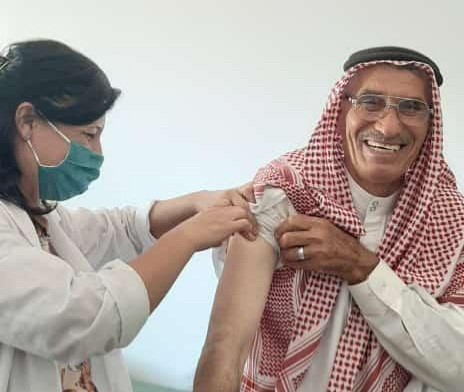 The European Union and its Member States are so far the biggest donor of COVID-19 vaccines in the world, having shared more than 350 million doses. Above, a vaccination in Syria. ©WHO
The European Union and its Member States are so far the biggest donor of COVID-19 vaccines in the world, having shared more than 350 million doses. Above, a vaccination in Syria. ©WHO
More than 20 tons of medical supplies arrive in Iraq’s Kurdistan region
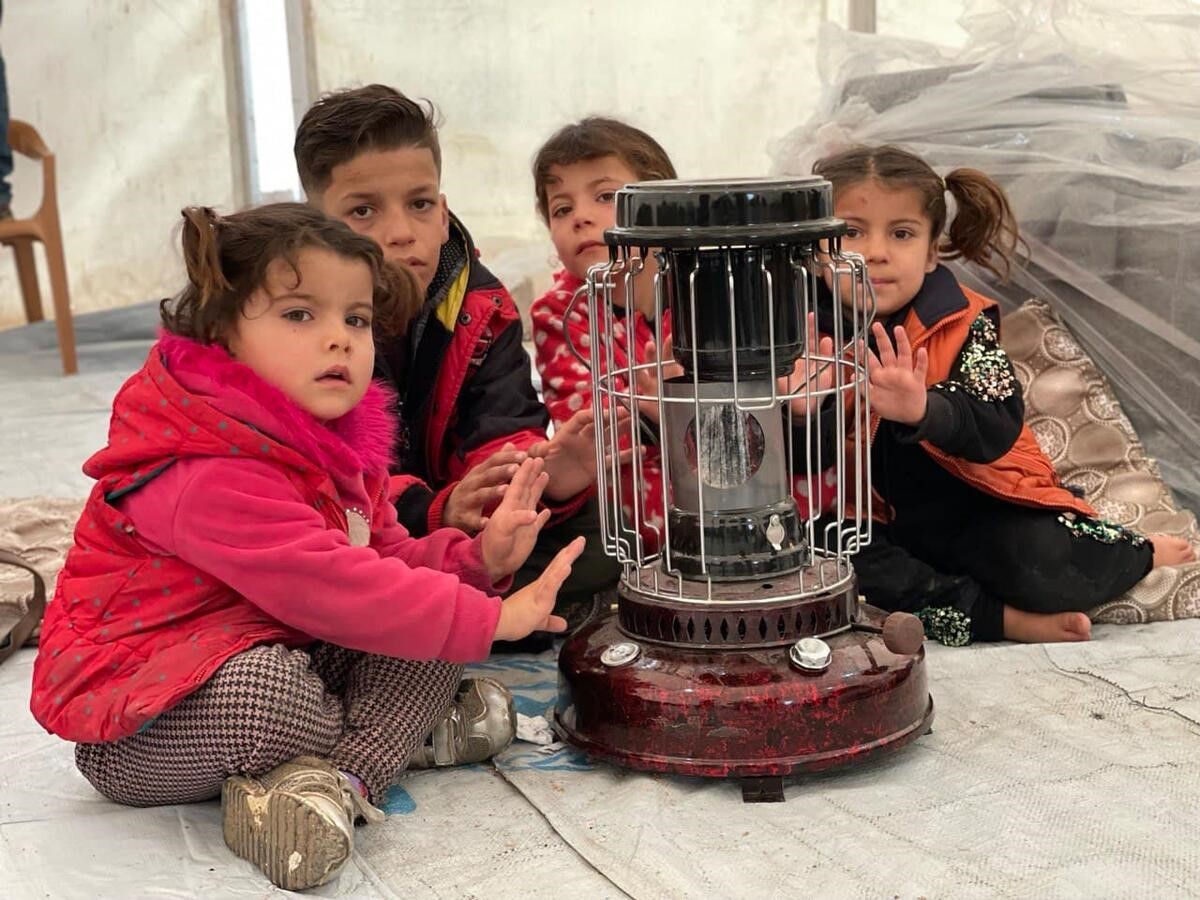 Refugee children in Iraq. @UNHCR
Refugee children in Iraq. @UNHCR
The consignment of 117 pallets, worth more than US$ 2.5 million, included medical devices, hospital equipment and personal protective gear for health workers. The supplies arrived just as Iraq battles its fourth COVID-19 wave.
The Kurdistan region is hosting nearly a quarter of a million Syrian refugees and more than 1 million internally displaced Iraqis, many living in camps in freezing weather.
The delivery was made possible through donations from Germany, Kuwait, and the United States.
“This shipment of emergency medical supplies will make a difference in the quality and quantity of health care services delivered in our health institutions,” Kurdistan region Minister of Health Dr Saman Barzangy said. “Hundreds of thousands of people will now be assured better access to essential and emergency health care services, including COVID-19 treatment.”
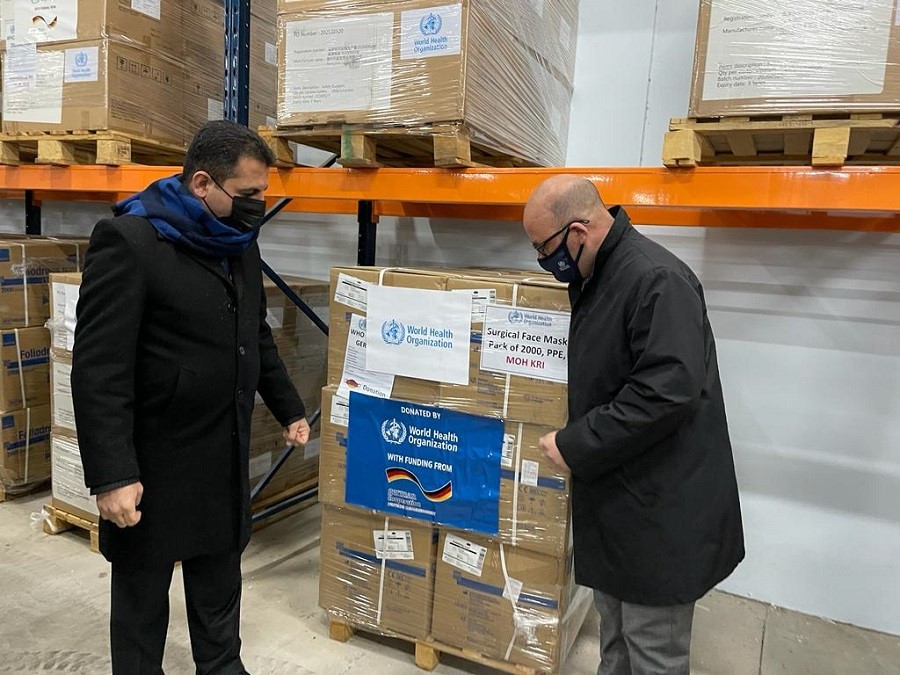 Kurdistan region Minister of Health Dr Saman Barzangy and WHO Representative Dr Ahmed Zouiten review a delivery of medical and laboratory equipment. ©WHO Iraq
Kurdistan region Minister of Health Dr Saman Barzangy and WHO Representative Dr Ahmed Zouiten review a delivery of medical and laboratory equipment. ©WHO Iraq
Massive flooding in South Sudan sparks cholera vaccine campaign

Cholera vaccination came to the Bentiu camp for internally displaced people. ©WHO South Sudan
Floods in South Sudan have created the right conditions for a cholera outbreak. With help from WHO and partners, more than 200 000 people have been getting their shots to avoid catching the dangerous, water-borne disease.
Local officials said the chances of an outbreak were aggravated by congestion in displacement camps, and poor access to safe water and sanitation.
“Thanks to all our partners, especially WHO, for all the support, including the provision of the vaccines to ensure that our people are vaccinated against cholera,” said Unity State Ministry of Health Director-General Elijah Makuei.
In the last half of 2021, widespread flooding in the area affected 835 000 people in 33 countries.
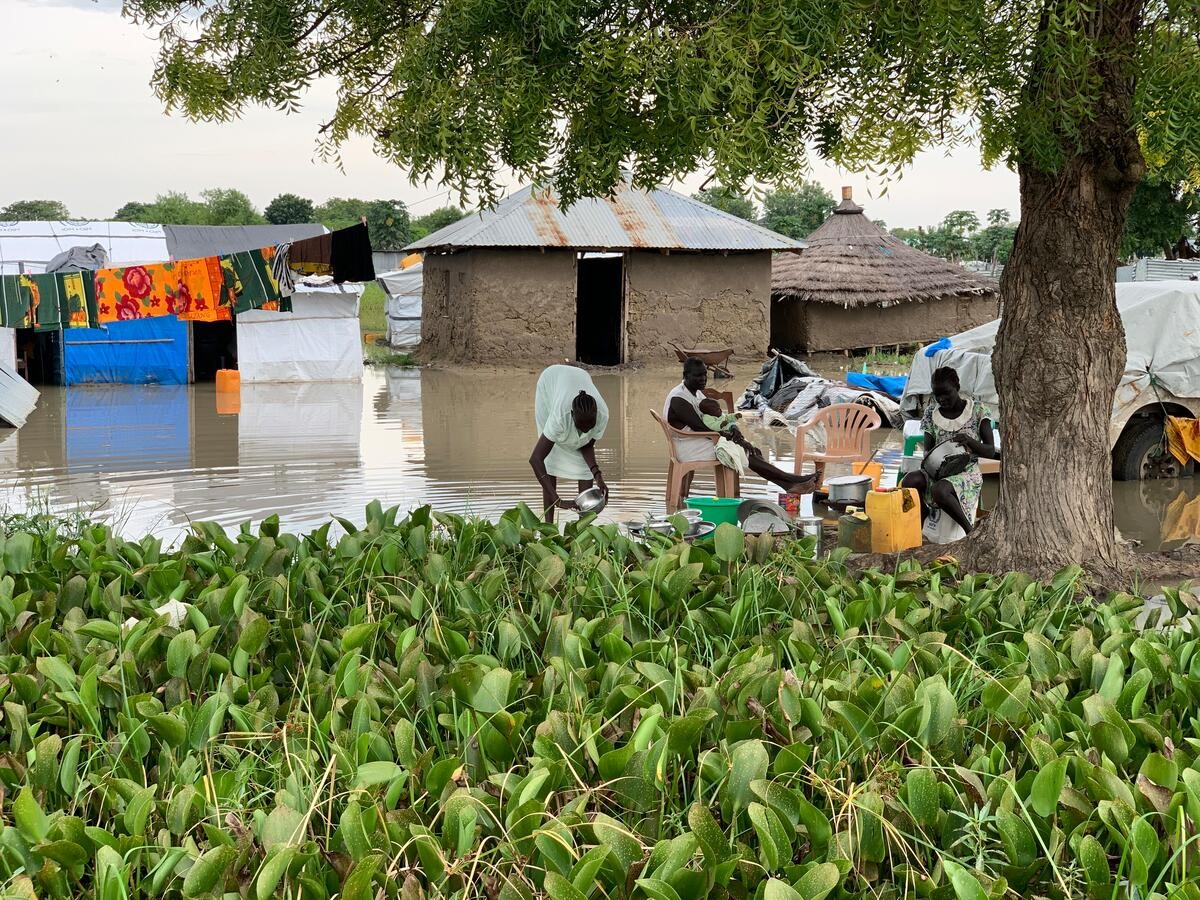 A flooded camp for displaced people in South Sudan. @UNHCR
A flooded camp for displaced people in South Sudan. @UNHCR
Nepal hits vaccination milestone
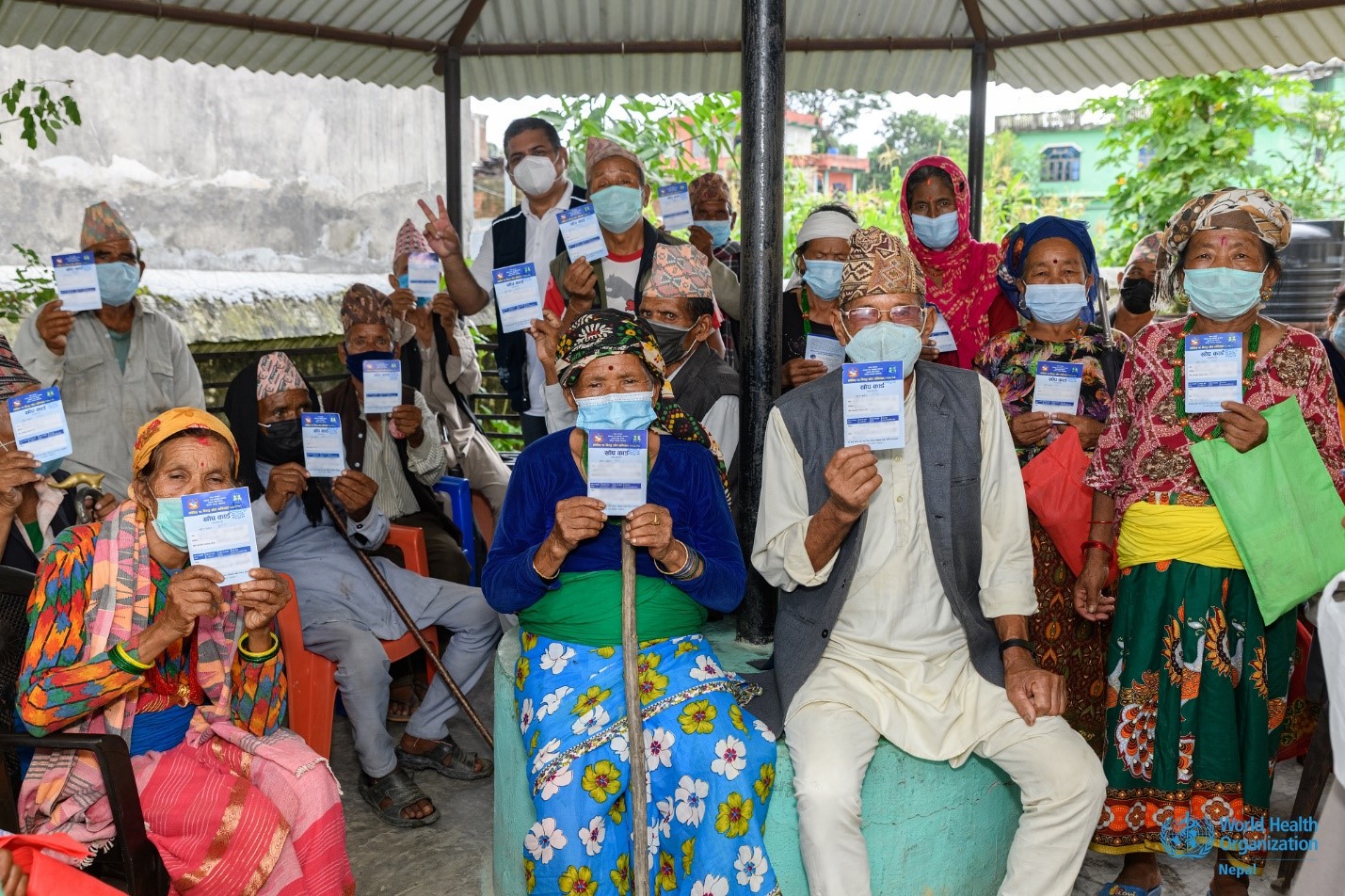 Newly vaccinated in Nepal. ©WHO
Newly vaccinated in Nepal. ©WHO
On 16 January, Nepal announced that it had fully vaccinated 40% of its population for COVID-19. Now the country is working toward the next WHO vaccination target – 70% by the middle of this year.
WHO officials applauded Nepal’s commitment to the project, and credited health workers for struggling through difficult terrain to bring vaccines to the most remote areas of the country.
New grant helps Timor-Leste tackle the pandemic
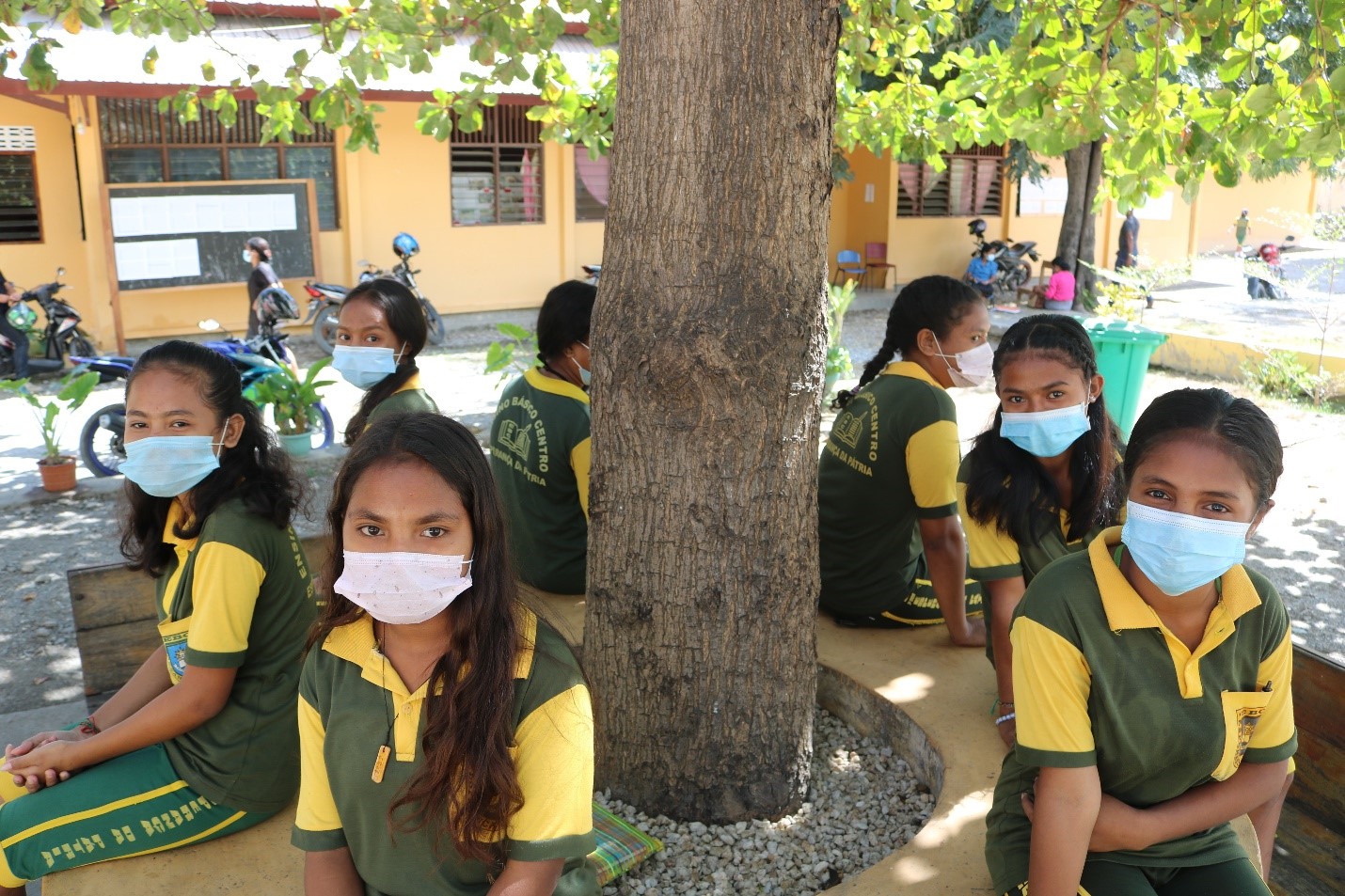 An EU contribution will boost Timor-Leste’s health system. Above, students take a break in Dili. ©UNICEF/Jemma Galvin
An EU contribution will boost Timor-Leste’s health system. Above, students take a break in Dili. ©UNICEF/Jemma Galvin
The nearly US$ 3 million in funding from the European Union is helping to mount a comprehensive pandemic response. The money will go to strengthen Timor-Leste’s capacity to test for COVID-19, detect and monitor cases, and related activities.
“The EU’s partnership with the WHO will support the Ministry of Health to scale up public health efforts and better protect people,” said Andrew Jacobs, Ambassador of the European Union to Timor-Leste.
Canada’s contribution of medical equipment helps Belize and Suriname
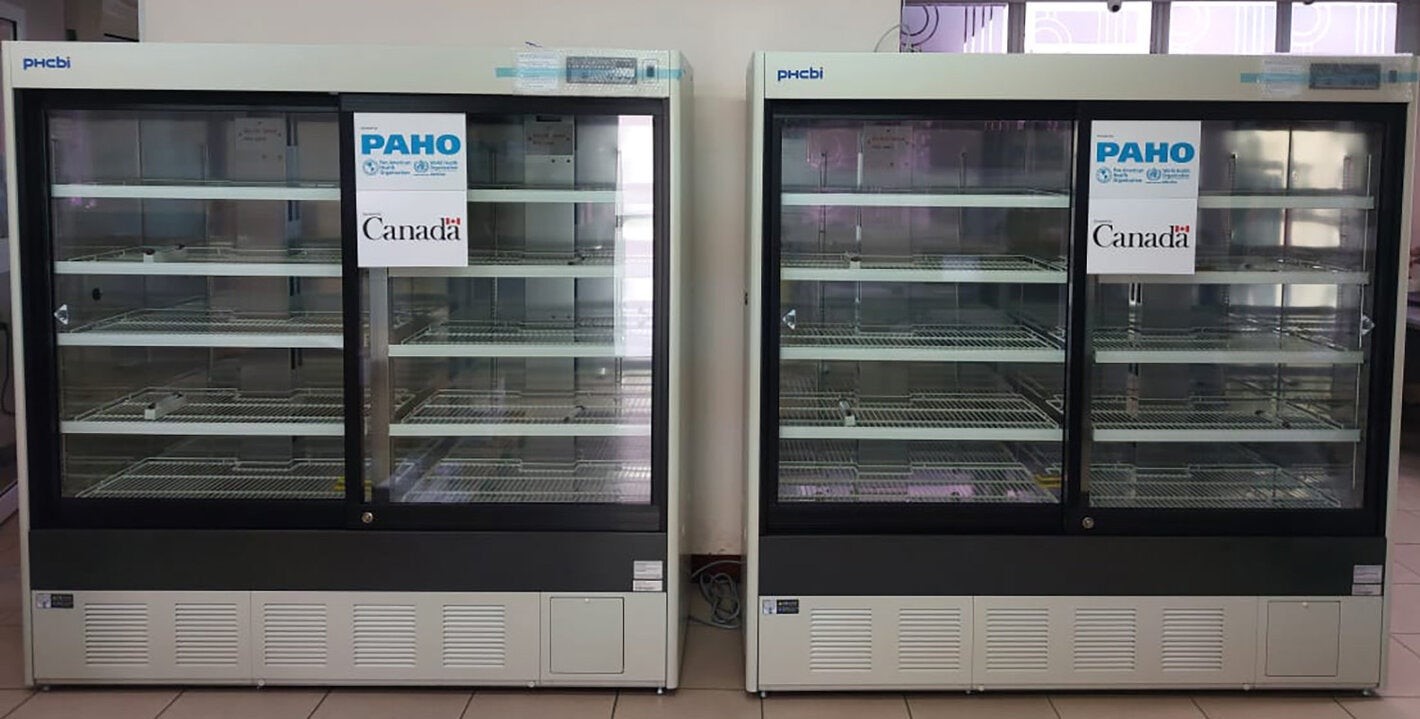 New vaccine refrigerators in Suriname. ©WHO
New vaccine refrigerators in Suriname. ©WHO
New defibrillators have arrived in Belize, and new vaccine refrigerators in Suriname, thanks to contributions from Canada. The defibrillators will help manage COVID-19 patients with cardiac problems. The two specialized refrigerators, and one freezer, will provide Suriname with more capacity for storing vaccines, an essential for vaccination campaigns.
* * *
Partners and donors recognized in this feature include Belgium, Canada, the European Union, France, Gavi, Germany, Irish Aid, IOM, Italy, Japan, Kuwait, Luxembourg, the United Kingdom, UNICEF and USAID.
WHO thanks all governments, organizations and individuals contributing to the COVID-19 response around the world since the beginning of the outbreak, and in particular those who have provided fully flexible contributions, to ensure a comprehensive fight against the disease.
* * *
Member States and other governments since 2021:
Australia, Belgium, Canada, Comoros, Denmark, Egypt, France, Germany, Ireland, Isle of Man, Israel, Italy, Japan, Kingdom of Saudi Arabia, Kuwait, Lesotho, Malta, Mauritania, Monaco, Netherlands, New Zealand, Norway, Philippines, Portugal, Republic of Korea, Slovak Republic, Spain, Sweden, Switzerland, Thailand, United Kingdom, United States of America.
Other partners since 2021:
African Development Bank Group, African Reinsurance Corporation, Alma Jean Henry Charitable Trust, Ancash, Asian Development Bank, Bill and Melinda Gates Foundation (BMGF), Central American Bank for Economic Integration (BCIE), China Medical Board, COVID-19 Solidarity Response Fund, European Commission (ECHO, NEAR, DG-INTPA), Foundation for Innovative New Diagnostics (FIND), Fundacion MAPFRE, FYT, Gavi-The Vaccine Alliance, International Development Association (IDA), International Organization for Migration (IOM), Islamic Development Bank (IDB), King Salman Humanitarian Aid and Relief Center (KSRelief), Kuwait Fund for Development, National Philanthropic Trust (NPT), Rockefeller Foundation, Secretariat of the Pacific Community, Sony, Susan Thompson Buffett Foundation, Task Force for Global Health (TFGH), The UN Resident Coordinator Office (UNRCO), International Drug Purchasing Facility (UNITAID), United Nations Central Emergency Response Fund (CERF), United Nations Children's Fund (UNICEF), United Nations Development Programme (UNDP) and the Multi-Partner Trust Fund (MPTF), United Nations High Commissioner for Refugees (UNHCR), United Nations Multidimensional Integrated Stabilization Mission in Mali, United Nations Office for South-South Cooperation (UNOSSC), United Nations Office for the Coordination of Humanitarian Affairs (UNOCHA), United Nations Population Fund (UNFPA), United Nations Postal Administration (UNPA), United Nations World Food Programme (WFP), Veolia Environment Foundation, Vital Strategies, WHO Foundation, World Bank.
